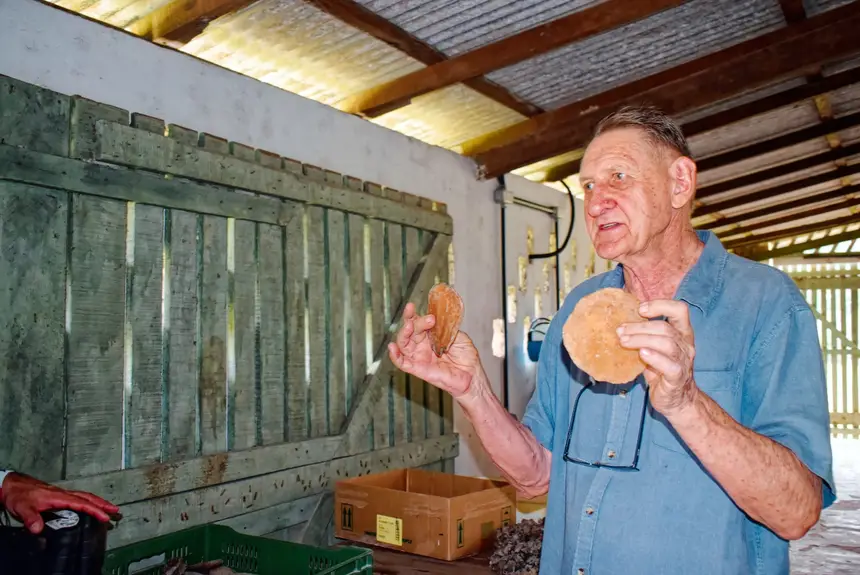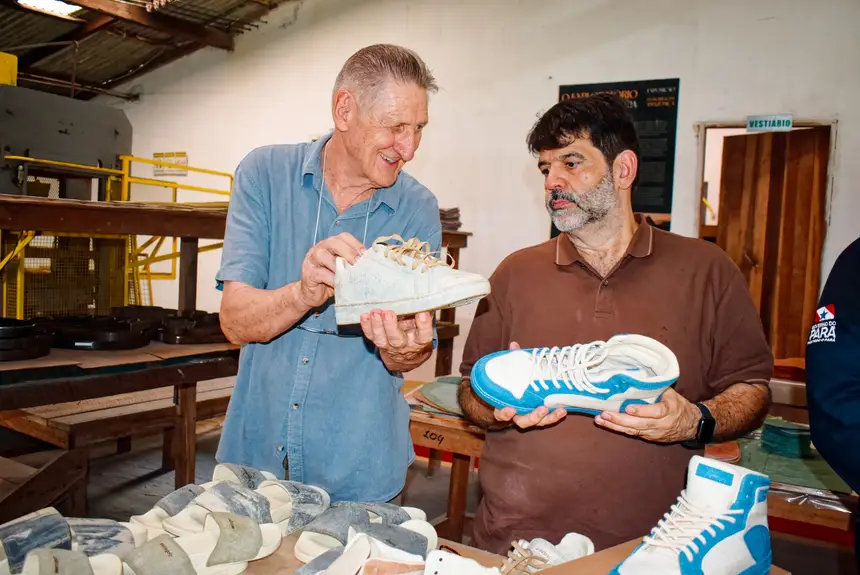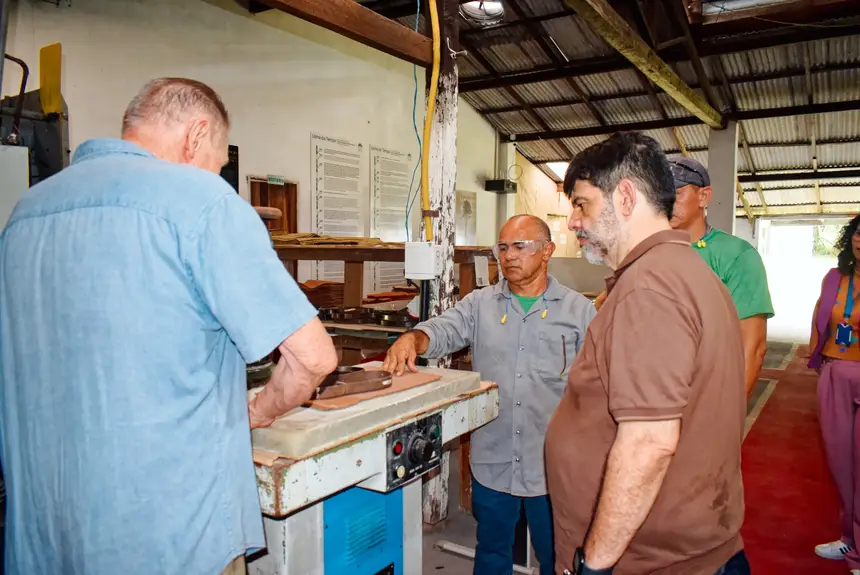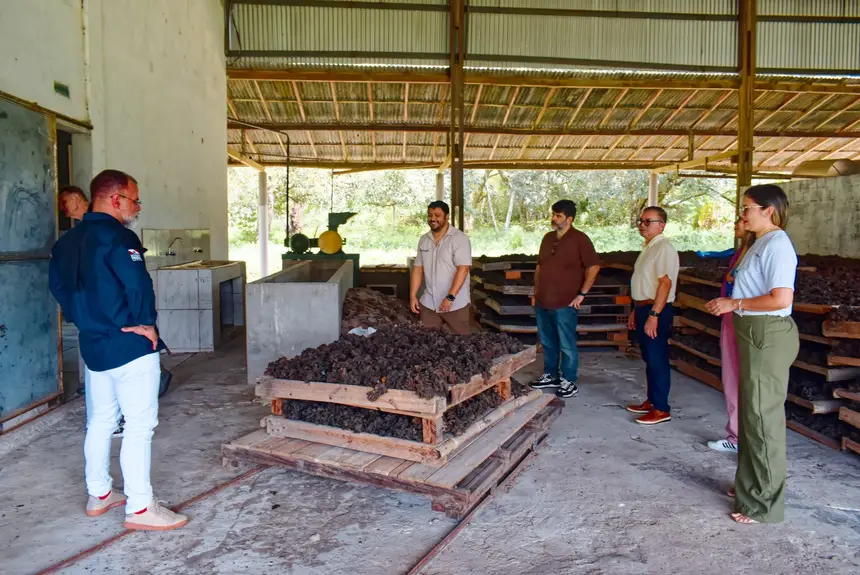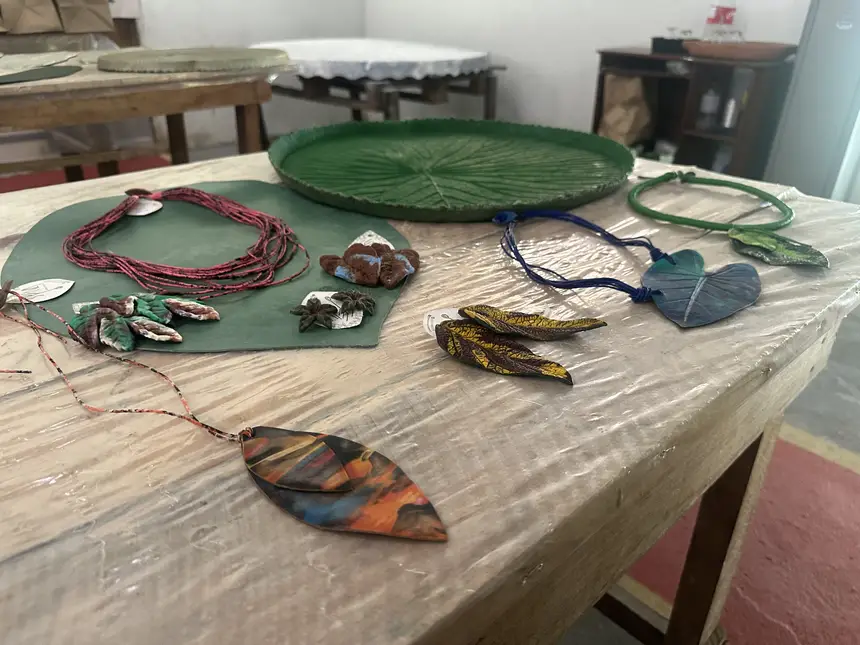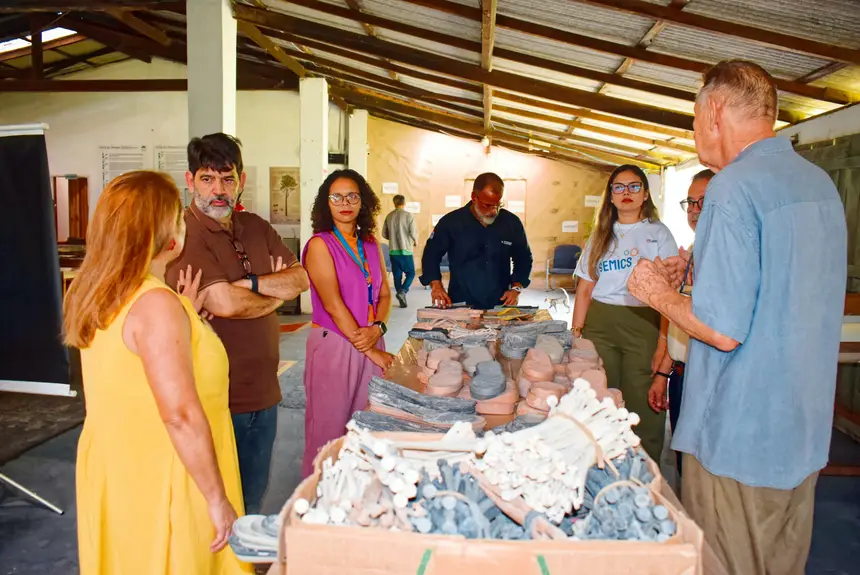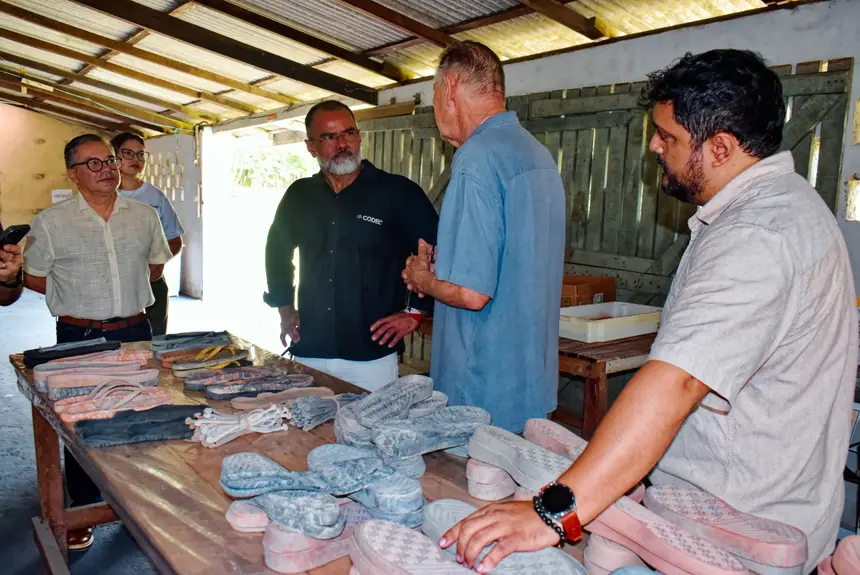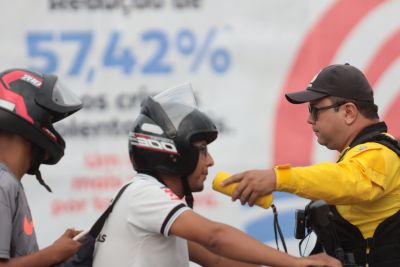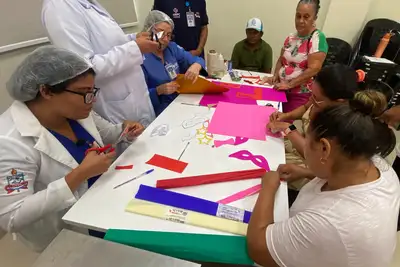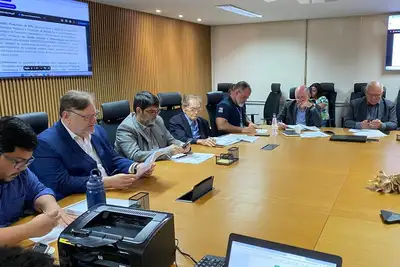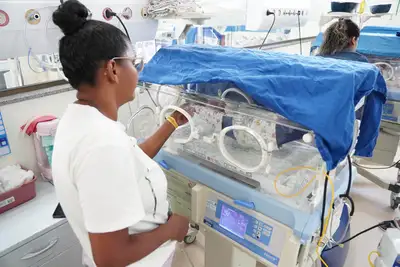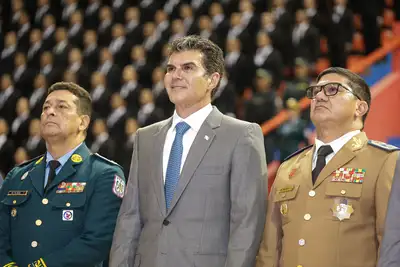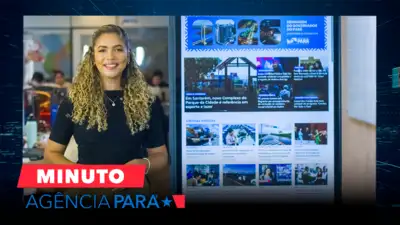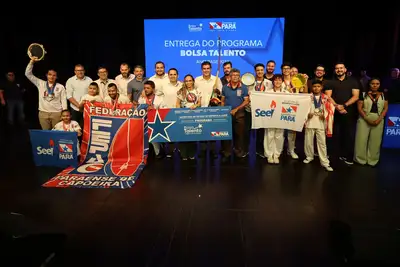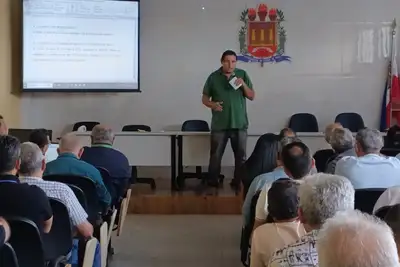Sustainable venture Seringô stands out in the institutional agenda of the Government of Pará
Codec and Sedeme strengthen partnership with industry that transforms açaí and Amazon rubber into innovation, development, and sustainability
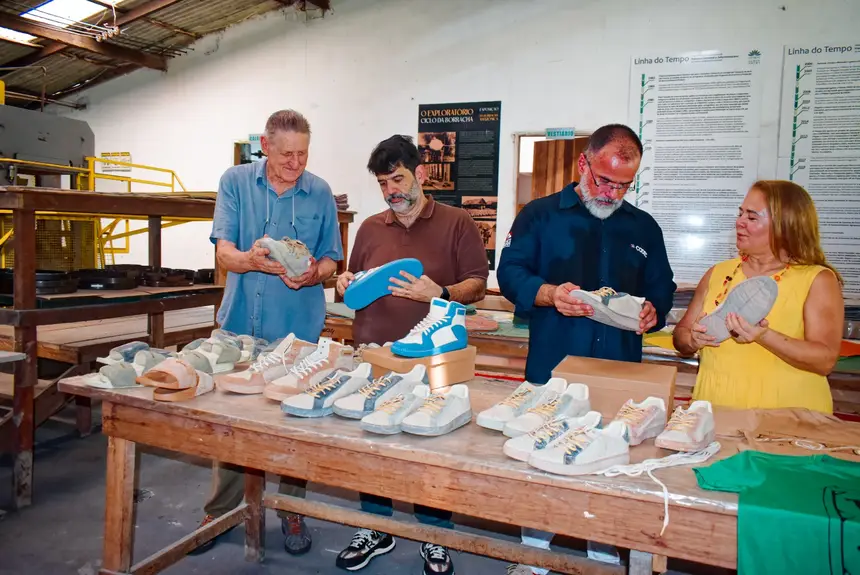
The Government of Pará, through the Pará Economic Development Company (Codec) and the State Secretariat for Economic Development, Mining and Energy (Sedeme), reaffirmed this Friday (19) its commitment to bioeconomy and sustainable innovation during a visit to the Seringô factory in the municipality of Castanhal. The initiative highlighted the strategic role of the State in supporting innovative companies that combine biodiversity, income generation, and social technology.
The delegation included the presence of the deputy secretary of Sedeme, Carlos Augusto de Paiva Ledo, and the director of Investment Attraction and Business at Codec, Manoel Ibiapina, who toured the factory facilities and closely followed all stages of the production process. During the visit, the municipal secretary of Industry, Commerce, and Services of Castanhal (Semics), Eduardo Espinheiro Jr., was also present, highlighting the relevance of the initiative for the local economy.
Codec got to know Seringô during the Internationalization Caravan in Castanhal. In March of this year, the entrepreneurs were welcomed at the Company’s headquarters in Belém, in a meeting that brought the industry closer to financial institutions, aiming to enable credit lines and tax incentives to expand production. During this same period, Sedeme also began articulations aimed at facilitating support and incentives. Now, the joint presence of the two institutions at the factory represents another step in this journey, marked by the construction of partnerships, constant dialogue, and concrete actions to encourage the productive sector.
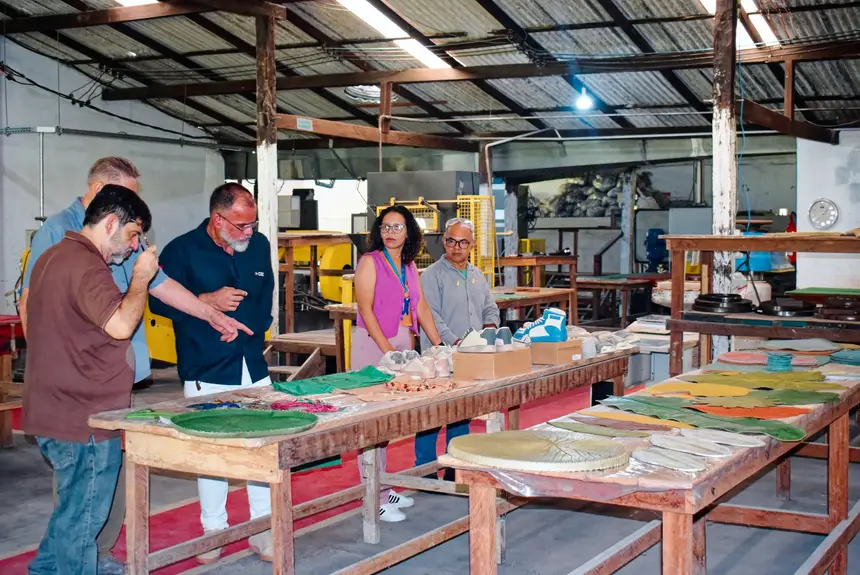
Resulting from the work of entrepreneurs Francisco Samonek, Zélia Damasceno, and Lauro Samonek, Seringô is already a reference in sustainable innovation. The company manufactures sneakers made from 70% Amazon rubber and 30% açaí seeds, in a handcrafted, clean process with no waste generation. Additionally, it adopts relevant environmental practices, such as rainwater harvesting, solar energy use, and organic inputs, from start to finish of production. Currently, it generates 12 direct jobs, and more than 1,585 extractivist families from Marajó benefit, in municipalities such as Portel, Melgaço, and Anajás.
For the director of Codec, Manoel Ibiapina, the company's work is an example of public policy transformed into concrete results. “Seringô shows how it is possible to transform forest waste into innovative products that generate jobs, income, and project Pará as a reference in sustainability and conscious industrial modality.”
The deputy secretary of Sedeme, Carlos Ledo, reinforced the impact of the initiative. “Getting to know Seringô's production up close shows how much Pará has the capacity to transform its biodiversity into innovative solutions. This is an example of how bioeconomy can generate jobs, income, and also position the State as a national reference in sustainability. The Government is committed to supporting initiatives like this, which unite technology, Amazonian identity, and regional development.”
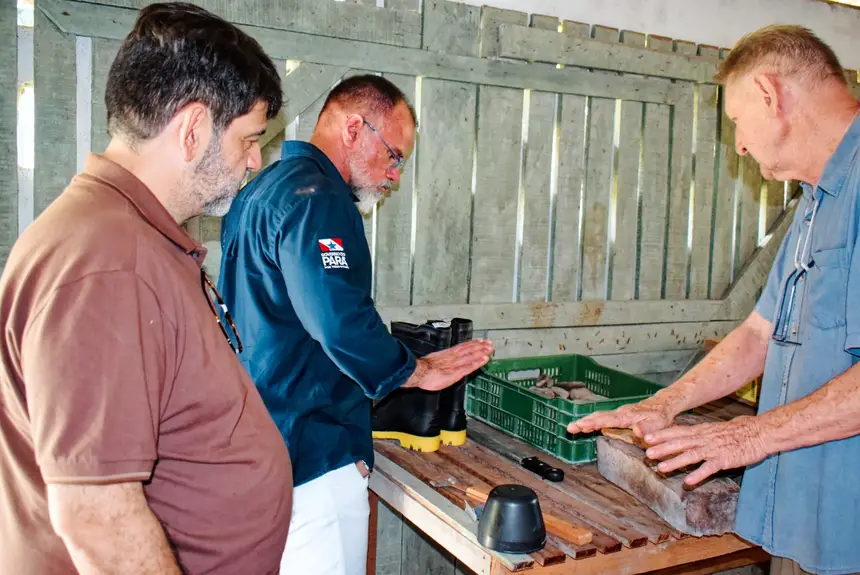
One of the founders of Seringô, Francisco Samonek, also emphasized the strategic role of the articulation with the Government. “The tax and financial incentive will be fundamental to ensure the expansion of production and further enhance the work of the rubber tappers. Bioeconomy is the future of the Amazon, and the Government of Pará has an essential role in this process,” he said.
The initiative is aligned with strategic programs such as Marajó Sustentável, which strengthens family farming and regional production through the National Register of Family Agriculture (CAF). Just like the actions conducted by Emater and Sedap, the visit to Seringô reaffirms the commitment of the Government of Pará to support, encourage, and facilitate sustainable economic development, transforming Amazonian biodiversity into innovation, jobs, and opportunities for local communities.
More than recognizing the potential of bioeconomy, the presence of Codec and Sedeme at the factory symbolizes the active role of both institutions in building partnerships, engaging in dialogue with the productive sector, and seeking solutions that transform Amazonian biodiversity into innovation, jobs, and opportunities for local communities.


